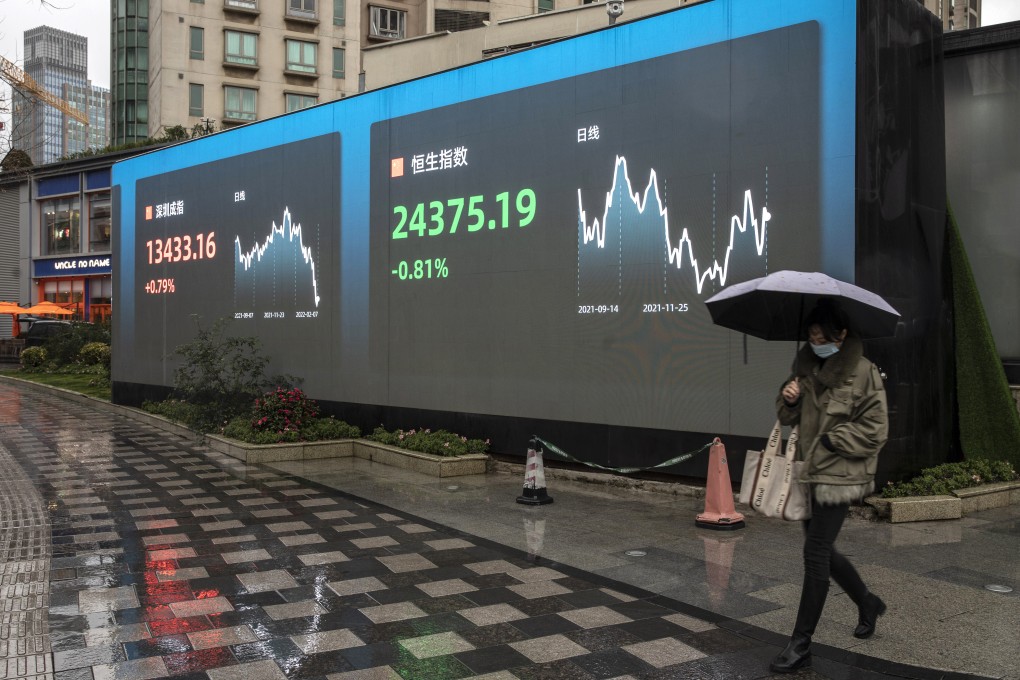Hong Kong stocks slip as Citigroup trims Alibaba price target while China lockdown, Fed tightening fuel recession risks
- Stocks have struggled for momentum after losing 6.4 per cent last quarter on a plethora of hurdles; Citigroup trimmed its price target for Alibaba
- Goldman Sachs expects more rate cuts as China vows to provide support for the real economy amid Covid-19 lockdown in Shanghai

The Hang Seng Index retreated 1.2 per cent to 21,808.98 at the close of Thursday trading, after earlier gaining as much as 0.7 per cent. The Tech Index lost 2.5 per cent and the Shanghai Composite Index fell 1.4 per cent.
Citigroup cut its price target on Alibaba’s US-listed stock to US$177 from US$200 on Wednesday, citing headwinds to earnings from Covid-19 impact. The stock last traded at US$105.24. The US bank has trimmed its target at least eight times over the past year from as high as US$338, according to Bloomberg data.
“The fundamental outlook for [US] stocks has deteriorated since the end of last year,” Mike Wilson, Morgan Stanley’s chief investment officer said in a podcast this week. “While markets have reflected some of this deterioration, we think it remains vulnerable to disappointing growth and increased risk of a recession next year.”